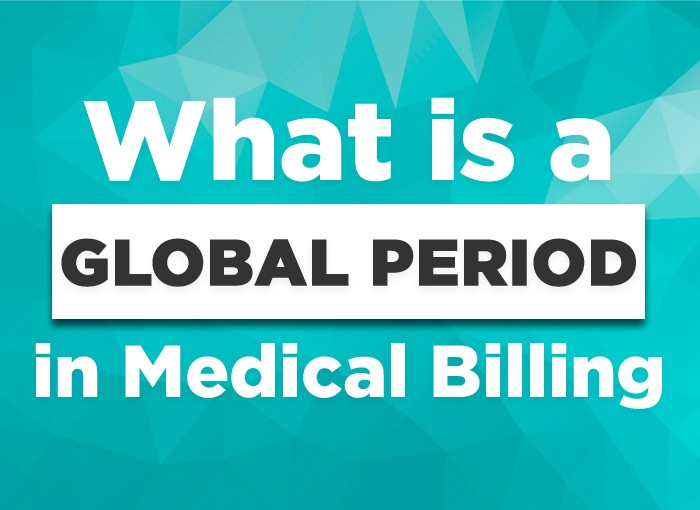What is the Global Period in Medical Billing
Is it possible to manage your medical billing without so much as an understanding of its fundamental rules and special terms? Well, the global period is one of those popular terms. It is one of the important components of the global surgery concept initiated by Medicare to cover extensive surgical procedures.
So, what is a global period in medical billing?
The global period is the timeframe in which all the surgical services covered under a claim include all post-operative visits and services performed. Simply put, this means they are in one lump-sum payment to the payer.
Therefore, the health provider cannot separately bill them. The global period could vary differently based on the type of operation. Generally, it is 0, 10, or 90 days. Now, let’s get into the details.
Significance of Global Period in Medical Billing
The healthcare industry regularly treats heaps of Medicare patients. Some of these sufferers acquire non-surgical treatments, even as others want surgical procedures, depending on how critical their circumstances are. Patients who’ve surgical operations often live within the clinic for some days because of the complexity of the system and the time needed to recover. In these situations, bills are calculated primarily based on the worldwide length. But to apprehend the global duration and its position in medical billing, you first want to recognize what the international surgical operation method is, as the two are closely connected.
Definition of Global Surgery (or Global Surgical Package)
According to the definition provided by the Centers for Medicare & Medicaid Services (CMS), Global Surgery can be described as falling within “the postoperative time frames applicable to payment for each surgical procedure or other indicators that describe its applicability to the service”.
From the term ‘time frames’ in this definition, we can define the global period as the time ranging from the surgical procedure and a few days beyond it. Thus, in simple terms, the global period comprises the days that a patient stays in a hospital under postoperative care.
Phases of Global Surgery
The Global Surgery is divided into three phases:
- Preoperative evaluation
- Intraoperative procedure
- Postoperative care
The Postoperative Care (Global Period)
As mentioned earlier the global period covers a patient’s stay in hospital postoperative. Based on the coverage of the post-operative time frame the global period is divided into three phases—zero days, ten days, and ninety days.
At present, the values used by CMS as global surgery indicators given in the CMS National Physician Fee Schedule Relative Value Files are—000, 010, 090, MMM, XXX, YYY, and ZZZ as given in the document.
https://www.cms.gov/apps/physician-fee-schedule/help/How_to_MPFS_Booklet_ICN901344.pdf
- 000: “Endoscopic or minor procedure with related preoperative and postoperative relative values on the day of the procedure only included in the fee schedule payment amount; evaluation and management services on the same day of the procedure generally not payable.”
- 010: “Minor procedure with preoperative relative values on the actual day of the procedure that is all post-operative relative values during a 10-day postoperative period, according to the fee schedule amount; evaluation and management services on the day of the procedure and within this 10-day postoperative period usually are not payable.”
- 090: “Major surgery with a day preoperative period and the 90 days afterward included as part of the fee schedule payment amount.”
- MMM: “Maternity codes; standard global period does not apply.”
- XXX: “Global concept does not apply.”
- YYY: “MAC determines whether the global concept applies and establishes a postoperative period, if appropriate, at the time of pricing.”
- ZZZ: “Code related to another service and is always included in the global period of the other service. (Note: Physician work is associated with intra-service time and in some instances the post-service time.)”
The medical biller is trained to generate a bill for the global surgical package using appropriate surgical codes and modifiers. This ensures maximum reimbursement for the global period by eliminating any delay in payments.
Important Must-Knows About Global Period In Medical Billing
- Other payers usually follow the global periods established by the Centers for Medicare & Medicaid Services.
- Surgery reimbursement includes compensation for all ancillary services and supplies, which are part of the habitual procedure itself.
- Global surgery services might be provided in any of the health settings: hospital, private practice, or ambulatory surgery center.
Medicare payment for procedures covers various services, such as:
- Pre-operative services on the day before a major procedure and also on the day of minor surgeries.
- Intraoperative services are required to be considered as a part of the surgery.
- Post-operative services such as wound dressings and incision care, pain management after surgery, and the removal of sutures, among others.
- Supplies used that must be required and related specifically for surgery.
- Services excluded from the global surgical package include consultations, services of another physician, treatment of underlying conditions, and diagnostic tests that are not part of the surgical procedure, among others.
Monitor meticulously what happens during the global fee period because that makes it easy to bill Medicare for just about everything given as a service. Understanding and using relevant codes are effective in bringing down inappropriate billing and denials or even halting medical services for the patient.




